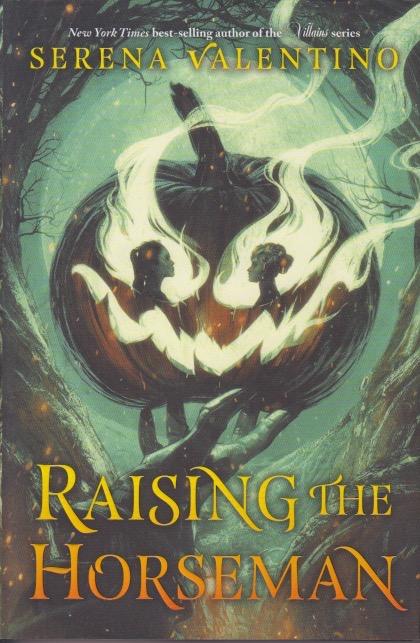
You’d think it’d be obvious, but it took me some time to realize that when a story’s being retold in a literary context, the point isn’t to restate the original in new words. No, sometimes the vision is quite different and the result is like building a different person from the same skeleton. I’m still on my Sleepy Hollow kick and I’m interested in what contemporary writers see in the story. Serena Valentino’s Raising the Horseman is a feminist retelling with sensitivity to LGBTQ+ concerns. Like some other recent Sleepy Hollow novels—Alyssa Palombo’s Spellbook of Katrina Van Tassel and Christina Henry’s Horseman—she takes the point of view of either Katrina or one of her descendants. In this case, both, as a present-day Katrina reads the diary of the original Katrina in Sleepy Hollow.
The story is pitched at the young adult level—a literary scene that’s thriving these days—and sets up the story this way: Katrina Van Tassel married Brom Bones and left her vast estate to her daughter and their daughters, as long as they took her name. This creates an unbroken succession of Katrina Van Tassels. As might be expected, the current Kat, as a teenager, wants to follow her own path rather than staying in Sleepy Hollow for the rest of her life. She meets a new girl in town, Isadora, who encourages her to see how her boyfriend Blake has been keeping her in an abusive relationship. “The Legend of Sleepy Hollow” is a love triangle, and that develops here as well, moving in new directions.
Valentino has been writing a series called Villains for some time. That series takes on the viewpoint of the antagonist rather that the hero. Such tales are quite popular these days as we reexamine dusty assumptions that have been sitting undisturbed for far too long. Fans of Sleepy Hollow will recognize the base story in this novel, but will be taken along a different path and will be left without a simple resolution. Younger readers adopt a more open attitude towards life, watching, as they do, the antics of many of their elders (particularly angry white men in positions of power), and they recognize bad behavior when they see it. The novel is a plea for tolerance, a trait that’s much needed in the world. The Headless Horseman is still there, of course, but the real villains of the story might not be who you assume they are.
